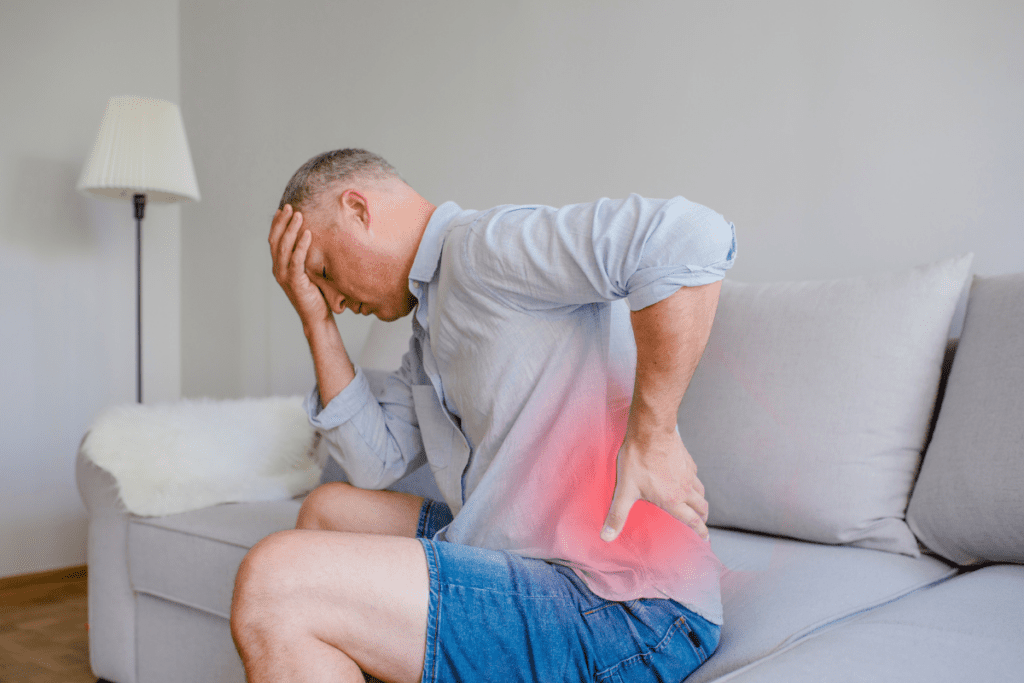Current models of SCS’s can be prescribed for the following conditions:
The Carlson Law Firm secures $1.5 million settlement for client who suffered serious injuries in an Austin car accident. |
The Defective Spinal Cord Stimulator Lawsuit includes multiple defendants responsible for spinal stimulators that are linked to several adverse effects that were unknown to patients. Abbott, Boston Scientific, Medtronic, St. Jude and Nevro failed to disclose the full extent of the risks associated with the permanent battery-powered devices intended to relieve pain. The damages caused by the spinal stimulators include the following:


The first spinal cord stimulators (SCS) date back to the 1960s to help people with chronic back pain. The device has electrode wires that send low levels of electrical impulses to the spinal cord. A battery implanted under the skin provides the power to the leads.
Since the first SCS was developed by Medtronic in 1968, multiple advances have been made, and additional companies have developed other models. In the 1980s, long-lasting lithium batteries enabled spinal stimulators to become more sophisticated. Modern spinal cord stimulators are divided into three categories:
Current models of SCS’s can be prescribed for the following conditions:
Spinal cord stimulators have wires that connect the battery to nerve endings in the spinal cord. During surgery, the wire leads are implanted between the spinal cord and vertebrae. The battery is connected to the leads that send electrical impulses to the nerve endings that cause the pain. Patients receive a remote they can use to initiate and control the level of electrical impulses whenever pain ensues. The electrical impulses will interrupt the pain.
Over the years, several issues have occurred with different SCS models. Some problems include non-compliance with FDA regulations related to electrical components, proper reporting of adverse events and manufacturing defects.
If you suffered damages due to a defective spinal cord stimulator, the following steps will get you started on the road to seeking just compensation and holding the manufacturers accountable for the negligent practices:
This includes pre-op records, surgical records and post-op records. You should also preserve records of any additional care required by the injuries caused by the defective SCS, starting from the first time you mentioned any related discomfort and spanning to the most recent medical attention. Screenshots of telemedicine chats can also be a helpful addition to the official medical records.
During a free consultation, you will meet with a member of our team where you will discuss the specifics of your claim. Our team will discuss medical records, the science that supports your claim and other elements that may help or hurt your defective spinal cord stimulator claim. We will also discuss our pay structure.
If you qualify for the defective medical device lawsuit, our team will send over documents to sign and we will walk you through the legal journey.
The FDA regulates the design of medical devices, providing guidelines that must be followed. When manufacturing companies deceptively produce and sell SCSs that do not comply with the electric pulse and maximum temperature parameters, they are putting people in danger for profit. Unethical practices from big companies must be brought to justice. Schedule a free consultation with our Defective Spinal Cord Stimulator Lawyers today.


The Carlson Law Firm stands out in the field of mass torts for several reasons. Here are key factors that make us the right choice for your legal needs:
The Carlson Law Firm’s combination of experience, resources and dedication makes us a top choice for mass torts representation. Our commitment to our clients and track record of success provide the confidence you need to pursue your case. Let us help you navigate the legal complexities and fight for the compensation you deserve.
There is no upfront legal cost for a Spinal Stimulator Lawsuit Lawyer from The Carlson Law Firm. We work on a contingency basis and will collect our fees when we successfully resolve your case.
Common issues include device malfunction, migration of the leads, electrical shock, infection and failure to relieve pain.
Lawsuits have been filed due to allegations of device malfunction, inadequate testing, failure to warn patients of risks and non-compliance with FDA requirements.
Individuals who have experienced complications or injuries from a spinal cord stimulator may be eligible to file a lawsuit.
Consult with a Defective Spinal Stimulator Lawsuit attorney with extensive experience in medical device litigation. Our mass torts team can evaluate your case based on your medical records and the circumstances of your injury.
While the American legal system doesn’t require an attorney to pursue legal claims, it is highly recommended to have an experienced attorney to navigate the complex legal process and maximize your chances of a successful outcome.
Seek immediate medical attention, document your symptoms and contact a personal injury attorney to discuss your legal options.
Mass action claims generally take several years to resolve. They are incredibly complex legal matters. Timelines can vary widely depending on the complexity of the case, the court’s schedule and whether a settlement is reached or the case goes to trial.
Must have had a spinal cord stimulator installed by one of the following brands:
The stimulators caused the following injuries:
It's best to contact us right away to discuss your state's statute of limitations. Consultations are free and there is no obligation.
If you or a loved one has suffered complications from a defective spinal cord stimulator, it’s crucial to seek legal representation that genuinely cares about your situation. At The Carlson Law Firm, our attorneys and legal assistants are dedicated to treating you with the respect you deserve and giving your case the personalized attention it requires. Contact us today at 800-359-5690 to discuss your case and explore your legal options.


We are a nationwide law firm with over 50 attorneys serving clients injured through little to no fault of their own.
100 E. Central Texas Expy
Killeen, TX 76541
(254) 526-5688
11606 N. I-35
Austin, TX 78753
(512) 346-5688
135 W. Slaughter Ln, Ste A
Austin, TX 78748
(512) 804-7277
6243 I-10 #550
San Antonio, TX 78201
(210) 696-8600
618 SW Military Dr.
San Antonio, TX 78221
(210) 923-7700
1109 W. Baker Road, Ste A
Baytown, TX 77521
(832) 806-6155
1121 Briarcrest Drive, Ste 200
Bryan, TX 77802
(979) 260-5688
653 Everhart Rd, Ste 105
Corpus Christi, TX 78411
(361) 336-3317
301 Junction Highway, Ste 100
Kerrville, TX 78028
(830) 257-7575
5112 McPherson, Ste 106
Laredo, TX 78041
(956) 712-2588
10101 Quaker Ave
Lubbock, TX 79424
(806) 401-0500
900 Lp 250 Frontage Rd b
Midland, TX 79705
(432) 247-6611
1717 N. I-35 Ste 305
Round Rock, TX 78664
(512) 671-7277
4282 S Jackson St.
San angelo, TX 76903
(325) 238-4322
2010 SW H K Dodgen Loop, Ste 201
Temple TX 76504
(254) 771-5688
2420 I-35 South
Waco, TX 76706
(254) 772-5653
2909 Garnett Ave
Wichita Falls, TX 76308
(940) 285-6333
1500 Rosecrans Ave Ste 500
Manhattan Beach, CA 90266
(254) 516-3570
33rd Ave N Ste 220
St. Petersburg, FL 33701
(727) 373-4655
100 E. Central Texas Expy
Killeen, TX 76541
(254) 526-5688
11606 N. I-35
Austin, TX 78753
(512) 346-5688
135 W. Slaughter Ln, Ste A
Austin, TX 78748
(512) 804-7277
6243 I-10 #550
San Antonio, TX 78201
(210) 696-8600
618 SW Military Dr.
San Antonio, TX 78221
(210) 923-7700
1109 W. Baker Road, Ste A
Baytown, TX 77521
(832) 806-6155
1121 Briarcrest Drive, Ste 200
Bryan, TX 77802
(979) 260-5688
653 Everhart Rd, Ste 105
Corpus Christi, TX 78411
(361) 336-3317
301 Junction Highway, Ste 100
Kerrville, TX 78028
(830) 257-7575
5112 McPherson, Ste 106
Laredo, TX 78041
(956) 712-2588
10101 Quaker Ave
Lubbock, TX 79424
(806) 401-0500
900 Lp 250 Frontage Rd b
Midland, TX 79705
(432) 247-6611
559 S I-35 Frontage Rd Ste 250,
Round Rock, TX 78664
(512) 671-7277
4282 S Jackson St.
San angelo, TX 76903
(325) 238-4322
2010 SW H K Dodgen Loop, Ste 201
Temple TX 76504
(254) 771-5688
2420 I-35 South
Waco, TX 76706
(254) 772-5653
2909 Garnett Ave
Wichita Falls, TX 76308
(940) 285-6333
1500 Rosecrans Ave Ste 500
Manhattan Beach, CA 90266
(254) 516-3570
333 33rd Ave N Ste 220
St. Petersburg, FL 33701
(727) 373-4655